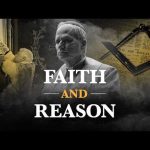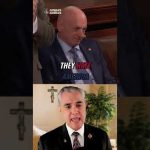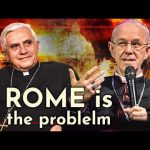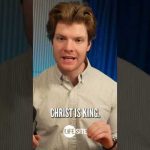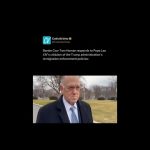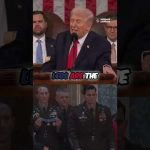Cardinal Christophe Pierre speaks during an educational event at St. Petersburg Catholic High School in St. Petersburg, Florida, on Jan. 24, 2024. The event included a panel discussion on “The Risk of Education” by Father Luigi Giussani. The event was sponsored by the Tampa Bay Communion and Liberation community. / Credit: Teresa Peterson
CNA Staff, Jan 26, 2024 / 06:00 am (CNA).
Cardinal Christophe Pierre, the pope’s ambassador to the United States, was in St. Petersburg, Florida, on Jan. 24 to draw attention to the issue of education and discuss what is needed to help young people thrive in the modern world.
During his approximately 24-hour visit to the state, the apostolic nuncio moderated the education forum “Education and the Road to Destiny” at St. Petersburg Catholic High School. Bishop Gregory Parkes of St. Petersburg hosted the forum.
The forum discussed “The Risk of Education,” a book published by Italian priest and educator Father Luigi Giussani, founder of the Catholic movement Communion and Liberation, which has a small but dedicated following in St. Petersburg.
Bishop Gregory Parkes, leader of the Diocese of St. Petersburg, Florida, opened the panel discussion Jan. 24, 2024, with prayer and remarks, saying: “Father [Luigi] Giussani’s experience as an educator brought him to an understanding of education, not simply rooted in the accumulation of information, but in opening the horizon of the student to truth, to goodness, and to beauty, so to recognize that road which leads to their destiny.” Credit: Teresa Peterson
Father Ralph D’Elia, the high school’s chaplain and priest secretary to the bishop, said the highlight for him was seeing Giussani’s education proposal “in action” by various educators and getting to see how it “takes flesh in their lives, and in their classrooms, and in the lives of their students.”
D’Elia recalled that Pierre spoke about how Giussani’s work “became very influential” in his approach working with a school that was developing in Uganda. Pierre served as apostolic nuncio to Uganda from 1999 to 2007 but has been the apostolic nuncio to the U.S. since 2016.
“It was a great blessing to have him. I think that his presence there was a great sign of affection for the movement of Community and Liberation; for our local community, which worked very hard to plan this event; for our diocese,” D’Elia said of Pierre. “He was here for less than 24 hours so it was obviously a sacrifice for him, but clearly it was important, and so we’re very grateful for that.”
The forum included a panel of four educators: the principal of St. Petersburg Catholic High School, Ross Bubolz; Jesuit High School theology department teacher Audrey Merck; public high school principal Edward Smith from Miami-Dade; and Holly Peterson, assistant superintendent of schools for the Diocese of Columbus, Ohio.
A panel of educational experts discusses “The Risk of Education” by Father Luigi Giussani on Jan. 24, 2024. Throughout his life, education was among Giussani’s primary intellectual interests. Credit: Teresa Peterson
D’Elia said the panel “was interesting because we had a variety of different experiences.”
“We had a Catholic school principal, we had a public school principal, and so to be able to bring out some of those relevant aspects of Father Giussani’s proposal, but then to see what that looks like in their concrete situations, was very helpful,” he said.
“For example, Ed Smith — who is the principal of the school in Miami, a public school — he talked about the fact that obviously in a public school you can’t talk about Christ openly. You can’t educate people as we would educate them in a Catholic school, but there’s an emphasis on those relationships and truly caring for the students … and developing those friendships,” he explained. “They’re not friendships in a backslapping kind of way but in a way that shows the student that you care about them; that you care about their future. So, this is something that’s been incredibly transformative in his school as he’s led his school as a principal.”
Bubolz shared that he found the cardinal’s insight on education “particularly helpful.”
“I love the concept of sharing traditions as an educator and then allowing the student the freedom to investigate and affirm the truth of the tradition for themselves,” the St. Petersburg principal said.
Bubolz also said the knowledge he gained in the event will help him “better form” his administration and faculty according to Giussani’s book.
“I can help them have confidence in taking risks to allow students to discover the beauty of a relationship with Christ and his Church, accepting the truth of this passed-on tradition [as] their own,” Bubolz said.
When asked about how the forum will affect his work as a chaplain, D’Elia said it’s helped him deepen his understanding of being a “witness” to the students not only through sacraments and lectures but also through “tak[ing] their lives seriously” just when chatting with them during breaks or meals.
“While I’m not a teacher myself, I think one of the things that Cardinal Pierre made clear … is that all of us are called to be educators — parents, teachers, priests,” he said.
The idea of an education forum has been brewing for a while.
Cardinal Christophe Pierre and Bishop Gregory Parkes speak with Diocese of St. Petersburg seminarians who attended the panel discussion Jan, 24, 2024. Credit: Teresa Peterson
“The event was inspired by the audience that Pope Francis had with members of the movement of Community and Liberation last October [2022],” D’Elia said. “It was the 100th anniversary of Father Giussani’s birth and the movement from across the world was invited to St. Peter’s Square. It was a tremendous event. I was there with other members from our community. And one of the things that Pope Francis said is he asked us not to lose that missionary zeal.”
In contemplating how to preserve the missionary spirit, the community decided to focus on education.
The event itself preceded National Catholic Schools Week, a week that celebrates the excellence of Catholic schools and their impact, which this year runs Jan. 28–Feb. 3.
“Catholic education is one of the priorities in the diocese,” D’Elia said, noting that throughout the year, the bishop is visiting all of the Catholic schools in the diocese.
The Diocese of St. Petersburg includes more than 13,000 students registered at 46 schools and early childhood centers along with two Catholic universities.
“Catholic education is incredibly important because Catholic education, I think, is the only place that you can turn today to receive a holistic education,” D’Elia continued. “So not just the accumulation of facts and knowledge for the sake of advancing your career, getting into college that you want to get into — as important as all those things are — but truly forming the human person … so that they can be the people that they were called to be; the people that they were created to be.”
Attendees turn out for an educational event at St. Petersburg Catholic High School in St. Petersburg, Florida, on Jan. 24, 2024. The event included a panel discussion on “The Risk of Education” by Father Luigi Giussani. The event was sponsored by the Tampa Bay Communion & Liberation community. Credit: Teresa Peterson
D’Elia says that he has seen a difference in the students because of this.
“We have great students because they know that they’re loved and they know that their entire life is being cared for: not just their academic life but their home life, what they’re struggling with; the challenges that they face; the joys that they experience,” he said. “All of these things are taking seriously within the context of the Catholic faith.”
When asked about the importance of Catholic education in St. Petersburg, Bubolz responded: “I could go on for days about this.”
“Catholic education is critical everywhere as it provides students [the opportunity] to experience the person of Jesus Christ in the educational setting, challenging our students each day to seek and live lives of holiness and virtue,” he said.
“The total formation of the student happens at our school: spiritual, academic, social, and emotional,” Bubolz continued. “We partner with the parents, recognizing them as the primary educators of their children. This provides the loving and supportive environment needed to maximize their potential as a child of God.”




